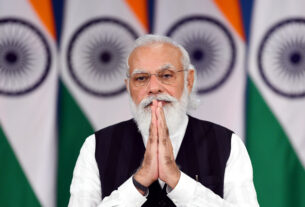By: Fatima Hasan
Every year it is the two dates which bring different regions and religions together in India—-January 26 and August 15. These two dates are not only important to government, politicians and school kids but also mean a big deal for prisoners. Like, recently, the Union Home Ministry issued guidelines to both the States and union territories to set the prisoners free and remit punishments as part of ‘Azadi ka Amrit Mahotsav.’
The slew of reliefs include premature release of women and transgender convicts of 50 years of age and male convicts of 60 years and above who have completed 50% of their total sentence period, physically challenged/disabled convicts with 70% disability who have completed 50% of their total sentence period, terminally ill convicts, convicted prisoners who have completed two-thirds (66%) of their total sentence period and poor or indigent prisoners who have completed their sentence but are still in jail due to non-payment of fine imposed on them by waiving off the fine.
Persons who committed an offense at a young age (18-21 years of age) and with no other criminal involvement or case against them and who have completed 50% of their sentence period would also be eligible for the remission. Of all the remissions, one which attracts attention the most is the fine waiver prisoners.
In India, fines are the most common type of sentence given by the courts. That is because they are imposed for lower-level crimes such as minor driving offence or minor theft. The court sets the amount of a fine after considering how serious the offense is and how much money the offender can pay based on the income. The amount of fine varies anything between Rupees 1,000 to Rs 25 lakhs. So, the ground reality is that the fines are imposed as per the courts’ convenience.
Although the fines imposed look very meagre to common man but the failure to pay the fine can make a prisoner stay in jail for longer duration and sometimes double to their actual sentence. The fact that the prisoner needs to continue in jail until the full payment of fines is very cruel punishment. The prisoners are required to work in jail then where do their wages go? Does the fine amount exceed the little earnings that they may have? Whatever the reason, but keeping convicts in jail even after the expiry of their term is violative of Article 21 of the Constitution. According to a report published in 2020, as many as 1,560 convicts were of such nature with Uttar Pradesh standing at the top.
Moreover, the prisoners who have completed their 90 percent of imprisonment term are actually posted at the prison petrol pumps before release. But in most of the cases, these prisoners are not even relieved later despite their good conduct.
If a crime is committed by a minor, then the person committing it should be punished and not his/her parents. This is important part of the juvenile laws which is to be followed strictly. This is significant in the back drop of the recent gang rape case in Hyderabad Jubilee Hills. Opposition parties demanded the chairman of a government body to resign due to the involvement of his son in the crime.
Another important point to be noted in the same case is the decision to try the juveniles as majors and punish them. Hence, this decision of the government is in conflict with the law. In a sense, when the minors are tried as majors for committing heinous crime, then they should be deemed to have committed it in full consciousness and held responsible. Their parents do not have any role in the crime, then why are they dragged in the case?
Also, the foremost thing that needs to be fast paced is the procedure of the court— the trial and verdict should be completed rapidly. The accused should not just be presented in the court before the judge for taking the next hearing date but instead for expeditious trial. The Judiciary as the protector of the Constitution needs to uphold the principles of democracy by looking at all prisoners alike. The Hindus, Muslims, Sikhs, Christians are all one family and the convicts should be imposed with same punishments irrespective of their faith.
No only this but the justice system should be the same for both poor and rich accused.
It is to be noted that persons convicted for dowry death, counterfeiting currency notes, offence of rape & human trafficking, offences under Protection of Children from Sexual Offences (POCSO) Act, 2012, Immoral Trafficking Act, 1956, Prevention of Money Laundering Act, 2002, Foreign Exchange Management Act, 1999, Black Money (Foreign Income and Assets) and Imposition of Tax Act, 2015, Narcotic Drugs Psychotropic Substances (NDPS) Act, 1985, Weapons of Mass Destruction and their Delivery Systems (Prohibition and Unlawful Activities) Act, 2005, Prevention of Corruption Act, 1988, offences against the State (Chapter-VI of IPC) and any other law which the State governments or the Union Territory administrations consider appropriate to exclude would not qualify for the special remission. But the under-trial prisoners of these categories need a quick fast track trial to be completed at the earliest to cut the delays.
The powers of remission of punishments, which are only in the hands of Governors and President of India, should be allowed on other occasions as well, apart from Independence Day and Republic Day. This can set free a large number of good conduct prisoners without waiting for Independence Day and Republic Day, which are 6 months apart.
Above all, the transparency and independence of Judiciary should be maintained by not making the courts a battleground for religious fights or shadow-boxing between the opposition parties and the government.
(eom)


